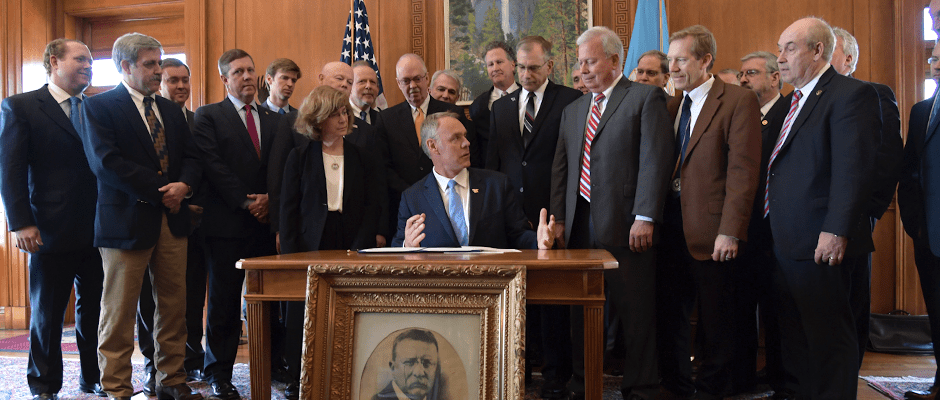Share this article
Zinke issues first orders as Secretary of the Interior
In Ryan Zinke’s first week as Secretary of the Interior, he addressed his staff to discuss his plans for the department and issued his first secretarial orders.
Zinke’s priorities for the Department of the Interior centered around aiding the frontline of the department and addressing infrastructure issues. He believes that DOI managers and rangers should have the right tools, equipment, and authority to make decisions. He plans to work as a team to restore trust and strives to lead the best department in the government.
In his discussion about reorganization of the department, Zinke linked back to Teddy Roosevelt and his foresight to look 100 years into the future. The new Secretary wants to organize the DOI to address the challenges that may arise 100 years down the road. Zinke also promised that he would fight for the budget – he is not happy about it in its current state.
On Mar. 6, Zinke released a proposal as part of the 2017-2022 oil and gas leasing program. The proposal would hold a 73 million-acre lease sale in August for oil and gas drilling in the Gulf of Mexico. This would be the first of 10 region wide lease sales over the course of five years. Many were surprised by the similarities to the Obama administration’s proposed plan.
On Mar. 2, Zinke issued his first two secretarial orders. Secretarial Order 3347 calls for expansion of recreation and fishing opportunities, advancement of conservation stewardship, and improvement of game and habitat management on federal lands.
Zinke also issued Secretarial Order 3346 which overturned the U.S. Fish and Wildlife Service Director’s Order 219. Director’s Order 219 called for the phase in of nontoxic ammunition and fishing tackle on lands and species under USFWS jurisdiction by 2022. Zinke’s secretarial order gave the rationale that the director’s order was “not mandated by any existing statutory or regulatory requirement and was issued without significant communication, consultation, or coordination with affected stakeholders.”
Several organizations applauded Zinke for his actions with Director’s Order 219, while others were more critical of its reversal given the documented negative effects of lead in the environment.
The National Wildlife Federation was represented at Zinke’s signing ceremony by President and CEO Collin O’Mara. O’Mara told HuffPost, “Having less lead in the water and soil is better for wildlife, but the best way to do this is not through a policy in the last few days of an administration but to have a science-based collaborative process with sportsmen and states that comes to a solution.”
American Bird Conservancy President George Fenwick said, “How shameful that this administration is casting science aside along with the welfare of wildlife.”
The Wildlife Society sent a letter to U.S. Fish and Wildlife Service on Feb. 10 to express TWS’ support of the intent of Director’s Order 219 and request improved communication and collaboration to implement the Order.
Read TWS’ Position Statement and Technical Review on Lead Ammunition and Fishing Tackle. The Wildlife Society recognizes that lead has been known to be a broad-spectrum toxicant to humans and wildlife and advocates for the replacement of lead-based ammunition and fishing tackle with nontoxic products. TWS acknowledges that the complete replacement may not be possible in specific circumstances.
Header Image: ©U.S. Department of the Interior








